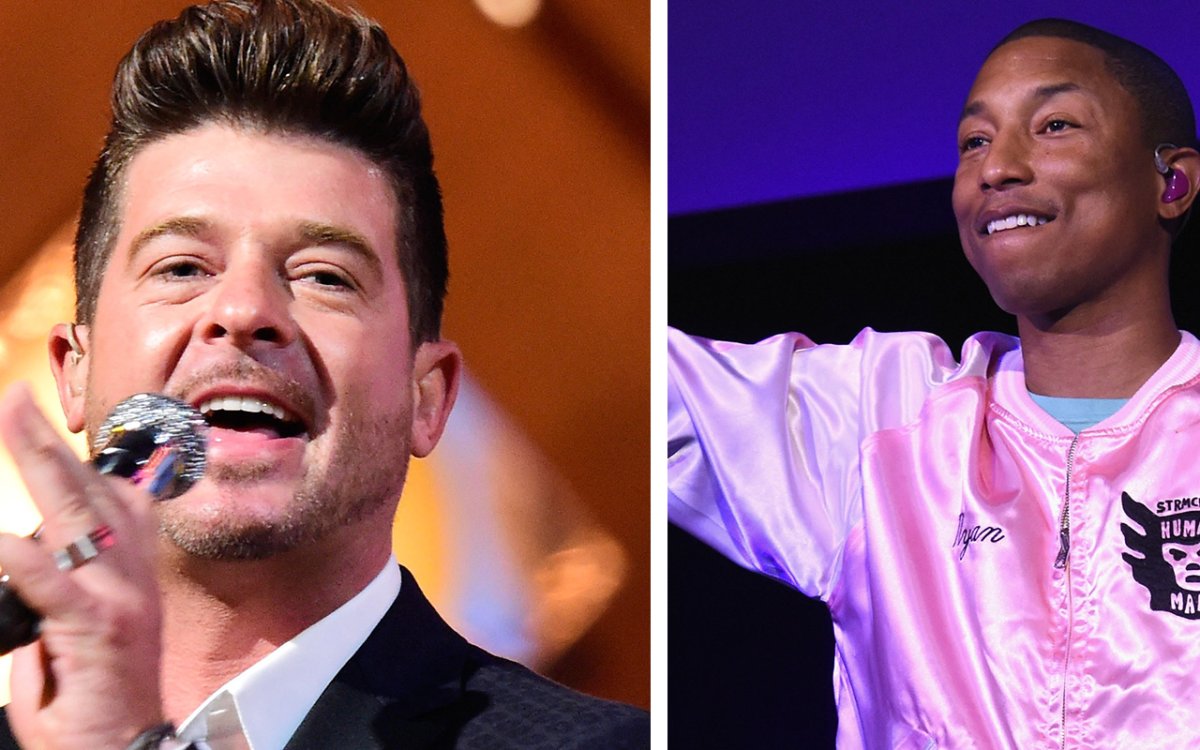Robin Thicke and Pharrell Williams are still caught up in a copyright legal battle with Marvin Gaye’s estate over the song Blurred Lines.

According to The Hollywood Reporter, the latest filing from their legal team is arguing against the legal merits of “a groove.”
READ MORE: ‘Blurred Lines’: More than 200 musicians support Robin Thicke’s appeal
The lawyers argue that since the music Gaye copyrighted was sheet music, and not the sound recording, the two songs should be compared only on the basis of what is expressed in the written form.
“A ‘groove’ or ‘feeling’ cannot be copyrighted, and inspiration is not copying,” the legal team wrote.
One of the issues in the appeal is whether U.S. District Judge John Kronstadt made a mistake by not allowing the jury to hear the original sound recording of Gaye’s song.
At the time Gaye’s song was created, the U.S. Copyright Office only accepted written notation as a deposit copy when a registration was filed.
READ MORE: Judge cuts ‘Blurred Lines’ verdict to $5.3M, rejects appeal

Get daily National news
Using only Gaye’s lead sheet for comparison, Pharrell and Thicke say it’s clear the works are not substantially similar — and they should have prevailed on summary judgment.
“The district court erred in holding that the issue of substantial similarity was for the jury just because the musicology experts presented conflicting opinions,” states the brief. “Under the district court’s approach, musical composition cases would enjoy special immunity from summary judgment determinations merely because the parties offer competing musicology experts.”
Thicke and Pharrell are hoping to have the Ninth Circuit Court of Appeals to either reverse the judgment or vacate it and remand the case back down to the lower court for a new trial.
After losing a 2015 court case that found in favour of Gaye’s heirs, which argued that Blurred Lines was too similar to Gaye’s Got to Give It Up, Thicke and Pharrell appealed.
READ MORE: Gaye family attempts to stop ‘Blurred Lines’ distribution
Thicke and Pharrell were ordered in March 2015 to pay $7.4 million to the soul legend’s estate after a jury found that they plagiarized Gaye’s song. A judge later reduced the fine to $5.3 million.
The musicians said the ruling could have “adverse impact on their own creativity, on the creativity of future artists, and on the music industry in general.”
“By eliminating any meaningful standard for drawing the line between permissible inspiration and unlawful copying, the judgment is certain to stifle creativity and impede the creative process,” they said in the court filing.
In 2016, the duo had over 200 other musicians file briefs with the Ninth Circuit Court of Appeals to express concern about the ruling in the case brought by the children of Gaye.
—With files from Chris Jancelewicz








Comments